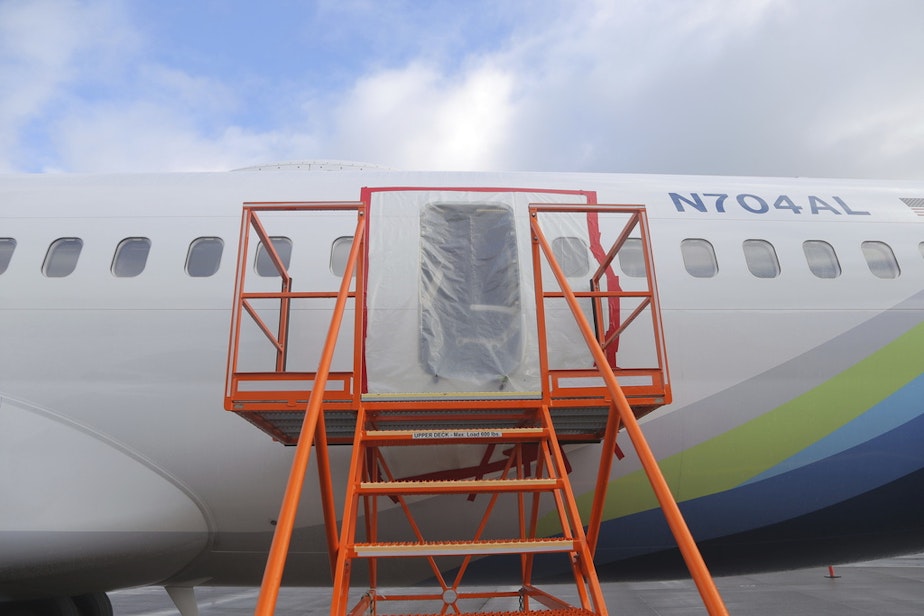Expert says Boeing's decision to move HQ from Seattle contributed to safety crisis

The decision to move Boeing’s headquarters out of Seattle was one of several factors that eroded the company’s safety culture, according to expert testimony during a Senate hearing Wednesday.
A panel of aviation safety experts behind a recent report to the FAA found the move made it more difficult to look out for so-called “human factors” that can undermine safety in airplane manufacturing. Those include “fatigue, complacency, and stress,” according to the FAA.
USC professor Najmedin Meshkati said safety specialists monitoring for those kinds of errors work best “when they are very close to engineers and system designers.”
“They exchange information, they work together, they work on the design of the system, and then they work on the training and they solve that problem together,” Meshkati said.
RELATED: Another Boeing whistleblower says he faced retaliation for reporting 'shortcuts'
Meshkati was responding to questions from Sen. Maria Cantwell, a Washington Democrat.
Sponsored
“We all represent big aviation states,” said Cantwell, who chairs the Senate Committee on Commerce, Science, and Transportation. “We want this to be right and we definitely believe in the workforce that we have in our states. We want them to continue to grow in excellence.”
In a statement, Boeing said it has taken important steps to improve its safety culture since 2020.
"We take the FAA review panel’s detailed assessment to heart and will act on their findings and feedback," the company said.
RELATED: Boeing challenges whistleblower allegations, details how airframes are put together
Boeing has been under the microscope since a door plug blew off of one of its jets earlier this year. The company was the subject of two Senate hearings Wednesday.
Sponsored
Following the inquiry into how the FAA can improve oversight of the company, a whistleblower testified that other models of airplanes beyond the Max may have safety flaws.
“They are putting out defective airplanes,” Boeing engineer Sam Salehpour told members of an investigative subcommittee of the Senate Homeland Security and Governmental Affairs Committee. Salehpour testified that 787 Dreamliners have vulnerabilities that could degrade over time.
Boeing vigorously denied the allegations, citing the millions of flights its 787 and 777 jets have safely taken over the years.
"A 787 can safely operate for at least 30 years before needing expanded airframe maintenance routines," Boeing said in a statement. "Extensive and rigorous testing of the fuselage and heavy maintenance checks of nearly 700 in-service airplanes to date have found zero evidence of airframe fatigue ... we are fully confident in the safety and durability of the 787 Dreamliner.”
RELATED: How Boeing got like this




